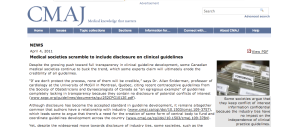Category: Uncategorized
Awake: my story
Swallowing That Sandwich

Since publishing “Death by Tuna Sandwich” in The New York Times about my self-diagnosis of a rare condition called swallow syncope – six people have either commented or contacted me describing the same symptoms. Interestingly, all of them have been male, two are brothers, and only two have had a formal diagnosis and treatment with a pacemaker.
Several readers expressed surprise that it took me so long to seek medical advice about my heart stopping, but this is a common theme in the stories I’ve heard from other sufferers. That’s because the symptoms typically begin very mildly, over many years, with nothing dramatic that would initially suggest a cardiac problem or prompt a medical consultation. I could compare it to something like headaches, or light-headedness, which for many people might wax and wane in frequency and severity depending on their age and stage of life.Read More »
Death by Tuna Sandwich?
A Lesson in Fertility – From Both Sides
MORE Magazine, May, 2011 — read more:
Can you Trust the Latest Canadian Contraceptive Guidelines? “The Bayer Facts” are Revealing in Their Omission.
April 4, 2011
By Kate Johnson
If it wasn’t for “the Bayer facts”, the new contraceptive guidelines from the Canadian Society of Obstetricians and Gynaecologists (SOGC) would be rather underwhelming.
But stripped down they are alarmingly revealing: “an egregious example of the extreme,” according to Dr. Allan Sniderman, a McGill University cardiology professor who has called for widespread medical guideline reform.Read More »
Canadian Contraceptive Guidelines Shun Disclosure
Saving Science Journalism
July 8, 2010
By Kate Johnson
I always love to see a journalist speaking into a microphone rather than holding one – especially in the context of a scientific meeting. That’s why science journalist Steve Silberman fuelled my delight earlier this week with his address to the very cool-sounding “Raz Lab” workshop.
The Raz Lab, run by Dr. Amir (– you-guessed it) Raz, is part of the Institute for Community and Family Psychiatry and Lady Davis Institute for Medical Research at the Jewish General Hospital in Montreal. I didn’t attend the workshop – which was intended for international researchers with expertise in the placebo effect – but Silberman’s address was open to the public and it’s been on my calendar for weeks.
Silberman made a splash last fall with an article about the placebo effect that he wrote for Wired. That alone would have been enough to get me out, despite the Montreal heatwave. But what really piqued my curiosity was that he had been chosen to speak to a caste of scientists, AND in addition to talking about his research on placebos he was also going to tell them about the importance of science writing.Read More »
Star Wars Chemotherapy: Nanotechnology Pushes New Frontiers in Pediatric Cancer.
April 20, 2010
By Kate Johnson
If I was a kid with cancer I’d invite Dr. Noah Federman to be the opening performance at my next birthday party. Dr. Federman is a pediatric oncologist, and Director of the Pediatric Bone and Soft Tissue Sarcoma Program at Mattel Children’s Hospital, UCLA – and while he uses a great deal of very sophisticated vocabulary that would fly right over the heads of my guests, he seems like the type who could make the necessary adjustments to fit his audience.
If I was the mother of a kid with cancer, Dr. Federman would be more than welcome at my kid’s party. Hearing him speak about nanotechnology at the American Society of Pediatric Hematology/Oncology I could picture a room full of sick kids and their parents drawing hope from his journey into deeper frontiers in cancer medicine.
I’m neither a kid with cancer nor the mother of one. What’s more I was probably the only non-scientist attending Dr. Federman’s talk. Perhaps it was this view “from the outside” that enabled me to see his potential as a birthday party performer.Read More »
TV Doctor/Reporters Cause Ethical Rumblings, but the Fault Line is Health Illiteracy
January 22, 2010
By Kate Johnson
The earthquake in Haiti has delivered a different sort of seismic upheaval in the fields of both medicine and journalism, as professionals in both camps debate the ethics in the niche zone where their respective crafts overlap. Television MDs like Dr. Sanjay Gupta and Dr. Richard Besser have helped deliver babies and stitch up injuries with the cameras rolling, creating rumblings and debates about the blurring of journalistic and medical boundaries.
With journalistic clarity, The Society of Professional Journalists issued an unambiguous scolding: “Advocacy, self promotion, offering favors for news and interviews, injecting oneself into the story or creating news events for coverage is not objective reporting, and it ultimately calls into question the ability of a journalist to be independent, which can damage credibility,” SPJ President Kevin Smith said in a statement.
Characteristically, the American Medical Association was less specific and more cautious in urging restraint: “The spontaneous volunteer has no place in disaster response,” asserted James J. James, MD, DrPH, MHA, director of the Center for Public Health Preparedness and Disaster Response, at an American Medical Association (AMA) webinar.
But still, the television networks -– including ABC, CBS, NBC and CNN –- are milking the coverage of their physician reporters for all it’s worth.

